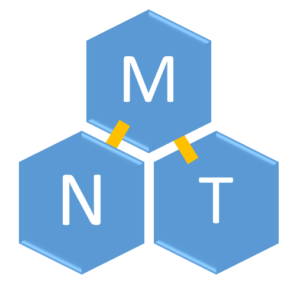Eat This to feel motivated- Dopamine & Acetylcholine
Neurotransmitter- DOPAMINE & ACETYLCHOLINE
Have you ever sat in front of your computer screen, with the task of writing a blog, and just thought “MAN, if I was just a little bit more focused and motivated I wouldn’t have been sitting here doing nothing for two hours”? Oh, me either. Not at all. Probably because I’m loading up on everything I talk about below. So…nevermind.
Neurotransmitter- DOPAMINE
The source of electrical voltage, intensity, and power, dopamine is the seat of powerful functions like metabolism, digestion, and blood pressure. Dopamine controls energy, excitement, motivation, pursuit of reward, and focus, as well as voluntary movement, intelligence, abstract thought, goal setting, long term planning, and personality.
Loss of dopamine can cause physical effects including addictive disorders, obesity, severe fatigue, and Parkinson’s disease.
Dopamine is generated in the frontal lobes (the reward center) of the brain. Neurons that produce dopamine generate Beta brain waves, which travel at 12-16 cycles per second (cps). Beta waves cause us to feel alert.
Balanced levels of dopamine are associated with …
Being powerful, motivated, feeling great all the time; feeling young, having lots of energy, and feeling mentally alert (1,34-35) (2)
A dopamine deficiency is associated with…
Feeling tired all the time, feeling burned out, feeling unmotivated, vulnerability to addiction (an “addictive personality”) (1, 34-36)
You’re thinking: If you don’t give me coffee with sugar right now, I’m going to DIE!
1.Quick Fix
- eat an apple
- eat some unsalted almonds
- eat some baby carrots
- eat baby carrots or carrot sticks dipped in unsalted natural almond butter
- drink6oz pomegranate juice
- drink pomegranate juice with a scoop of whey protein powder
- eat a hard boiled egg
- eat some pre-cut broccoli florets (Broccoli-Woccoli) dipped in your choice of dip: Greek yogurt mixed with black pepper & basil, OR a ranch dip made with a dry ranch dip mix blended with lowfat cottage cheese, ORa dill dip made by mixing dill weed with greek yogurt
- Have an Energy & Mood Boost Smoothie: Blend ½ cup frozen blueberries, ½ cup frozen mango, ½ cup pomegranate juice, ½ cup unsweetened almond milk, 1 teaspoon chopped fresh ginger root (or to taste; may be spicy), 1 tablespoon ground flax seed, 1 tablespoon soy lecithin granules, 1 scoop whey protein powder
- eat apple slices dipped in natural almond butter (only ingredient is almonds)
2. Foods to eat regularly
- lean beef
- chicken
- turkey
- duck
- pork
- wild game
- whole milk
- cottage cheese, low-fat
- ricotta, low-fat
- eggs
- granola
- oat flakes
- wheat germ
- broccoli
- spinach
- carrots
- apples
- pomegranate juice
- unsalted almonds
- salmon
- egg whites
WHY: foods a – m are high in tyrosine (a natural pain reliever that increases one’s resistance to stress) & phenylalanine (a fatigue & pain reliever). Tyrosine & phenylalanine are amino acid building blocks of dopamine. 1
Foods n – u are high in the hormone leptin, which regulates appetite and makes you feel full. When leptin levels rise, dopamine levels rise.1
B. SPICES
- basil
- bay leaves
- black pepper
- cayenne
- cumin
- fennel
- flaxseed
- garlic
- ginger
- mustard seed
- rosemary
- savory
- sesame seeds
- tarragon
- turmeric
E. AVOID
- sugary foods
- processed“simple” carbs
- caffeine
WHY: You can boost dopamine levels, & thus energy, right away by eliminating as much sugary & processed carbs from your diet as you can. Caffeine, sugars, & white flour foods offer a brief high, but will actually lower dopamine production in the long run since the body reacts to the dopamine surge with an adjustment to restore stasis; the brain will reduce the number of dopamine receptors and it will take more & more of the addictive substance (sugar/white flour/caffeine) to achieve the same “high”.
Neurotransmitter- ACETYLCHOLINE
Acetylcholine is responsible for the speed of electrical flow within the brain and throughout the body. Brain speed determines the brain’s functional age, which may be different from its chronological age. Acetylcholine is a lubricant that assures that the brain is moist and that electrical signals can move quickly from one neuron to another and from one system to another, and that the electrical signals do not dissipate before reaching their destinations. Plenty of acetylcholine provides for quick thinking and creativity, good memory and recall, and feeling good about one’s self.
Loss of acetylcholine can result in cognitive problems ranging from childhood learning disabilities to dementia and Alzheimer’s disease, memory lapses and loss, language disorders, difficulty in relationships, and difficulty getting into a routine and managing a schedule.
Acetylcholine is generated by the neurons in the parietal lobes, the “thought factory” of the brain. They generate Alpha brain waves, which travel at 8-12 cps and cause us to feel creative. (1,2)
Balanced levels of acetylcholine are associated with …
Quick thinking, creativity, awareness, ready memory & quick recall, lasting relationships rooted in fond memories; a moist, well lubricated brain, body, healthy joints & skin; can move quickly from one idea/activity/project to the next (1; 58,60) (2)
Deficient levels of acetylcholine are associated with …
A slower brain, feeling mentally sluggish/foggy; memory & attention issues, including ADD, dementia, & Alzheimer’s disease; memory lapses, paranoia, tension in relationships, inability to get in a routine, difficulty managing daily schedule, a drying, poorly lubricated brain & body, dry skin & mouth; tendency to obsess on a single thought (1; 58-60)(2; 96-97)
You’re saying: “Yes, I’Il take one order of fatty foods, with a side of something fried, and while we’re at it, I’ll add on pizza, a donut, and ice cream. To-go.”
2. Foods to eat regularly
- beef
- chicken
- fish
- cod roe
- eggs
- caviar
- almonds
- hazelnuts
- peanuts /peanut butter
- soybeans
- tofu
- blueberries
- oranges
- grape juice
- broccoli
- cauliflower
- cabbage
- lettuce
- celery
- fava beans
- coffee
- wheat germ
- cucumber
- zucchini
- lettuce
- asparagus
- lean meats
- dairy
- eggs
- fish oil
- avocados
- nuts
- seeds
- olives
- plant oils
- safflower oil
- olive oil
- omega 3 fats
- fresh water fish
WHY: foods a- y are high in choline. Choline is a nutrient that begins as a B vitamin and is converted to acetylcholine, the neurotransmitter associated with brain speed & quick thinking. Choline rich foods are needed daily. Food z (asparagus) prevents the formation of an enzyme that destroys acetylcholine (1,70) (2, 107). Choline is also abundant in foods containing fats, like foods aa – mm.[i]
AVOID
- bad fats (greasy fried or fast foods, pastries, ice cream, pizza
WHY: these fats deliver a temporary burst of acetylcholine, but literally clog your brain & circumvent natural acetylcholine production, making your deficiency worse (1, 58); trans fats, hydrogenated oils & “fake fats” clog & distort neurotransmitter receptor sites, making them unable to receive the chemical messages your brain needs (7)
- Younger (Thinner) You Diet, Eric R. Braverman, M.D. 2009
- The Edge Effect, Eric R. Braverman, M.D. 2004
- Forever Young: Introducing the Metabolic Diet, Nicholas Perricone, M.D. 2010
- nutritionalmd.com
Palatnik A, Frolov K, Fux M, Benjamin J. Double-blind, controlled, crossover trial of inositol versus fluvoxamine for the treatment of panic disorder. J Clin Psychopharmacol. 2001;21:335-339.
Benjamin J, Levine J, Fux M, Aviv A, Levy D, Belmaker RH. Double-blind, placebo-controlled, crossover trial of inositol treatment for panic disorder. Am J Psychiatry. 1995;152:1084-1086.
- ultramind.com , Mark Hyman M.D.
The UltraMind Solution: The Simple Way to Defeat Depression, Overcome Anxiety, and Sharpen Your Mind, Mark Hyman M.D. 2010
- mayoclinic.com
- Food and Mood, (female author)




Leave a Reply
Want to join the discussion?Feel free to contribute!